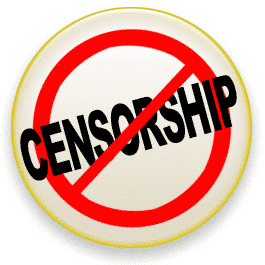
Smashwords, the popular online ebook distribution platform that recently celebrated the uploading of the 100,000th title to its catalog of digital editions, found itself embroiled in some controversy over a request from PayPal that it remove nearly 2,000 titles that the online payment company considered inappropriate or offensive. Failure to do so would result in the deactivation of Smashwords’ PayPal account. At the risk of losing the ability to let customers make their ebook purchases through the internationally recognized payment method, Smashwords was able to forestall the removal of the titles while they continue to negotiate with PayPal.
Now, authors and anti-censorship advocates have taken action against PayPal through a Change.org petition started by author D.C. McMillen. The petition is directed to the company and outlines the concern over the blatant violation of free speech rights. For its part, Smashwords is supporting the petitioners.
“We believe it’s wrong for credit card companies, banks and other financial institutions to censor legal fiction,” stated Smashwords in an email to its subscribers. “We believe this censorship is targeting a small subset of erotica fiction. The same censored themes are prevalent in much mainstream fiction. We believe it would be unfair to authors and readers alike for any organization to censor what writers are allowed to imagine and what readers are allowed to read. If the PayPal restrictions were taken to the extreme, many mainstream classics including Nabokov’s Lolita or Margaret Mitchell’s Gone with The Wind could technically be banned. The Girl with the Dragon Tattoo with its depiction of rape could be banned. Even the Bible could fall under the net since it contains scenes of rape and incest. Although such extreme censorship is unlikely, what about moderate censorship? Therein lies the danger of censorship. Where does it stop, and where do we draw the line? It’s difficult for Smashwords or any other retailer, distributor or publisher to assume the role of moral arbiter when there’s so much grey area. We’re engaged in ongoing discussions with our counterparts at PayPal to reach an equitable solution.”
Smashwords’ CEO Mark Coker sent the following statement to the authors whose works would likely be removed if talks with PayPal do not resolve the issue.
“PayPal is asking us to censor legal fiction. Regardless of how one views topics of rape, bestiality and incest, these topics are pervasive in mainstream fiction. We believe this crackdown is really targeting erotica writers. This is unfair, and it marks a slippery slope. We don’t want credit card companies or financial institutions telling our authors what they can write and what readers can read. Fiction is fantasy. It’s not real. It’s legal.”
PayPal first issued the ultimatum to Smashwords by way of saying they are only doing so in order to remain in compliance with the terms of agreements with various banks and credit card institutions, but did not name those companies specifically.
To sign the petition to ask PayPal to stop censoring authors’ free speech through their fictional ebooks, click HERE.
Mercy Pilkington is a Senior Editor for Good e-Reader. She is also the CEO and founder of a hybrid publishing and consulting company.